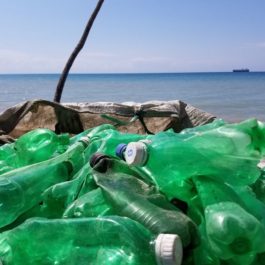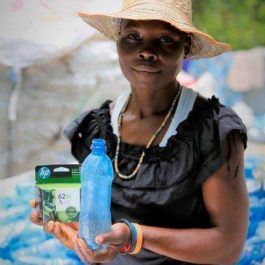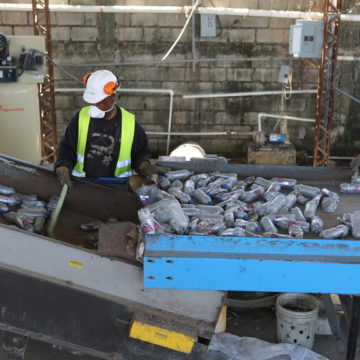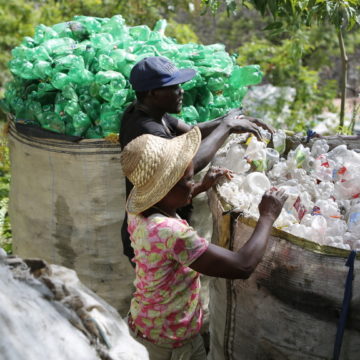HP Canada & Lavergne Group: Upcycling Plastic Waste
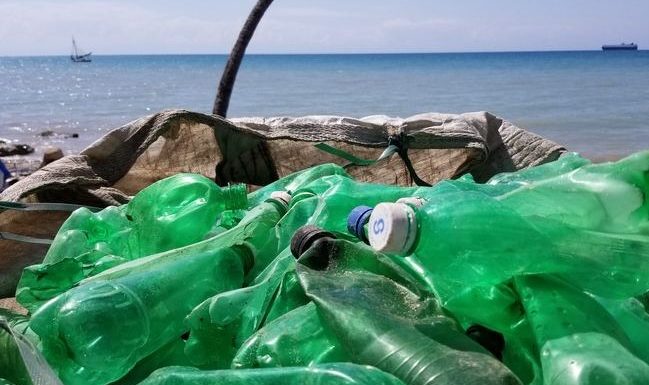
Projects Sponsor
Message, and more in a bottle; Upcycling Ocean-Bound Plastic Waste into High End Tech Products
In Haiti bottled water is about the furthest thing from a luxury. As the country works to recover from the devastating earthquake of 2010, the clean water in those plastic bottles is a lifeline. Strapped as the small country is to provide even basic services to its over 11 million citizens, tossing all those plastic bottles into a bright blue box at the curb is not an option.
It’s hardly surprising, then, that plastic bottles litter Haiti’s canals and shoreline—oftentimes finding their way into the Caribbean Sea. Thankfully HP Canada partnered with The Lavergne Group and turned to the bottle, in a good way.
Hand in hand with the First Mile Coalition, who are working to addresses the complex issue of child labor in the “First Mile” of global supply chains, and beginning with communities that neighbor Haiti’s largest landfill, the Truitier, HP created a program to collect plastic bottles in Haiti for use in HP & The Lavergne Group’s innovative closed-loop plastics recycling program here in Canada.
Diverting plastic from the Caribbean Sea to Canada where it’s made into a valuable end-products is a practical solution to a “waste” problem but in implementing this program, HP Canada did more than that. Taking an holistic approach to the issue, they reinvented their supply chain procurement approach and formal design for circularity program to consider and improve the “social impact” of how and where it sources materials and what impact that has on the local economy.
To date, HP Canada has purchased more than 325 tonnes or 716,000 pounds of ocean-bound plastic from Haiti. They have upcycled roughly 25 million bottles collected in Haiti, for use in manufacturing Original HP ink cartridges and products, here in Canada. More importantly, because they chose to do this responsibly, and The Lavergne Group has created a demand for the used plastics, HP has helped create more than 795 income opportunities for adults, so children don’t need to work.
Business and microbusinesses have been created where they are most
needed. Educational opportunities, food, and medical assistance have been
directly provided to 100 children and the working conditions for Haitians
collecting these materials have been improved.
This has all
been done as part of the process of helping to clean up the environment of the
poorest country in the Western Hemisphere, while addressing the growing problem
of ocean-bound plastics by proving they can be incorporated into a
multinational supply chain and then sourcing them in a way that benefits the
local economy.
After piloting their approach, HP provided a further $2 Million investment in early 2019, to install a wash line in Haiti, in order to give higher value for collected plastics to the waste pickers. Technology to sort coloured plastics to get a high enough quality for upcycling was found, creating more value in waste.
The Lavergne Group is now getting what can only be described as ethically sourced recycling material and by adding “social impact” to its purchasing strategy—without increasing costs or compromising the quality of its product or supply chain standards—HP is accelerating its vision of “making life better for everyone, everywhere,” an idea more of us should copy.

